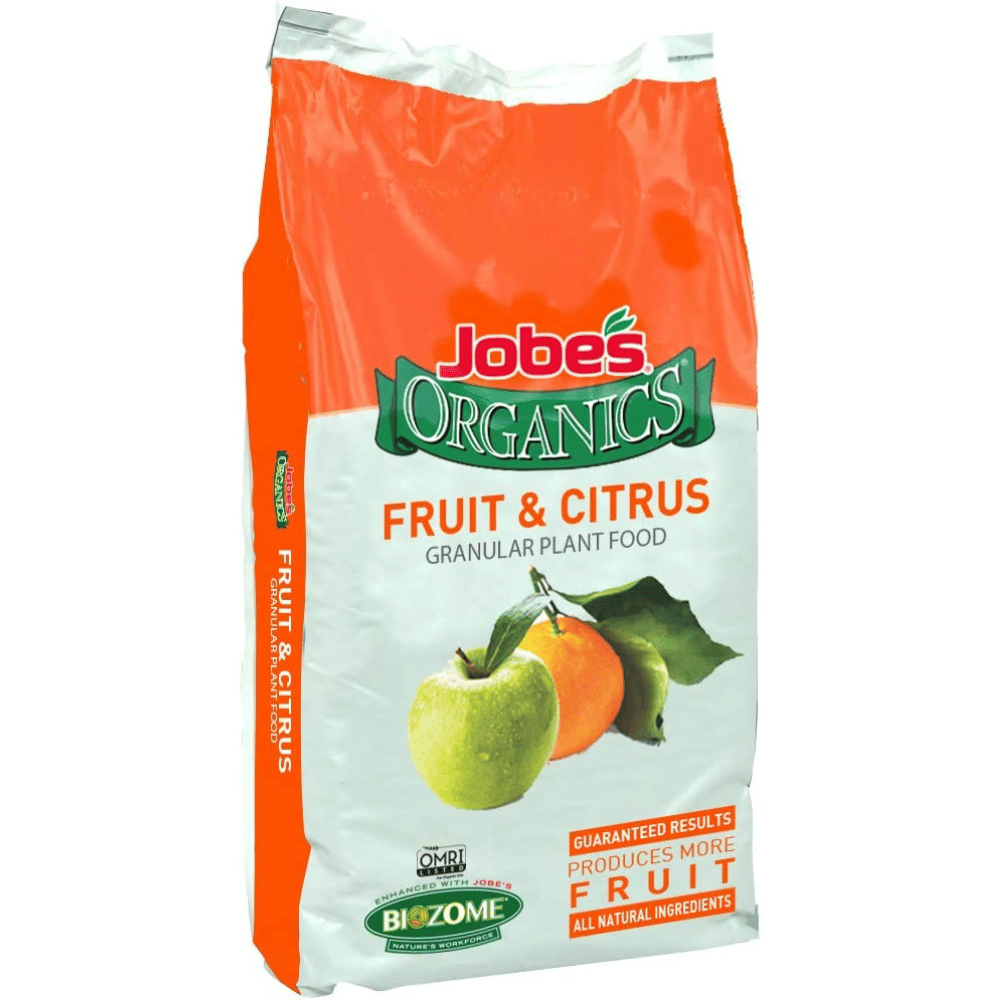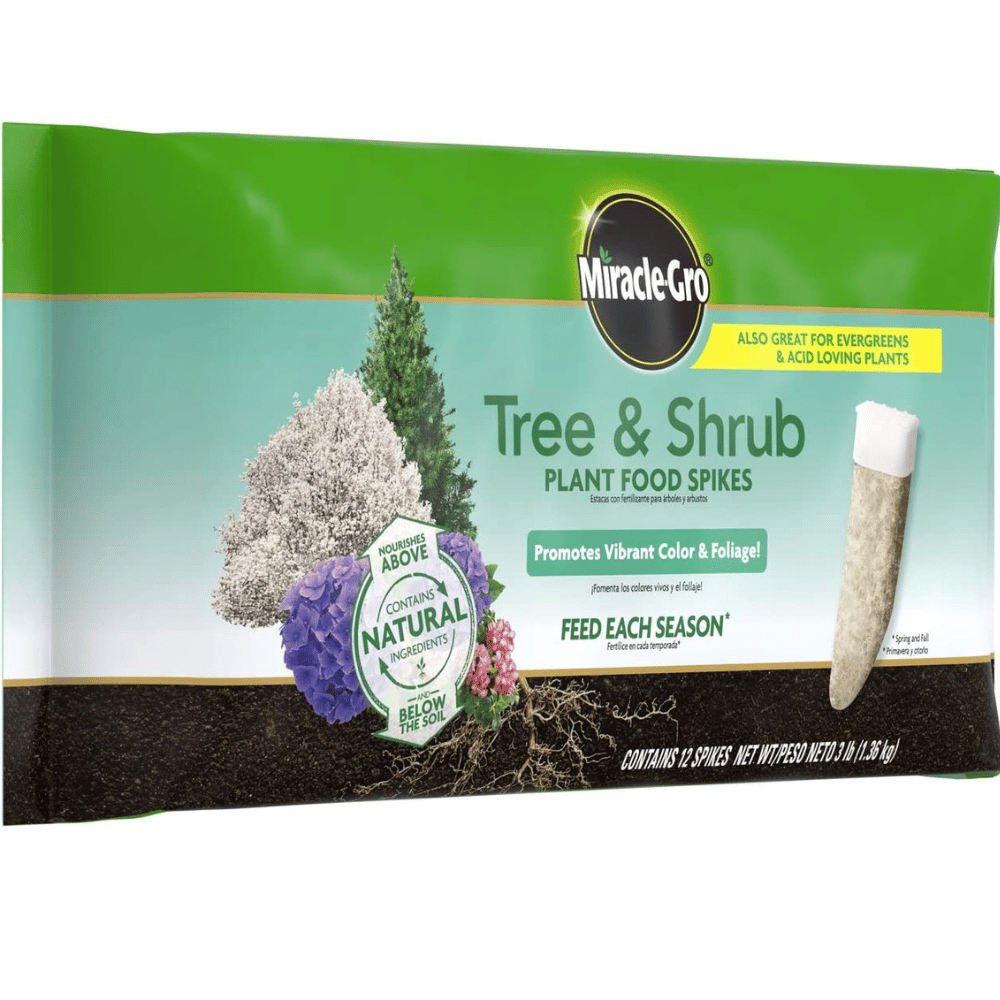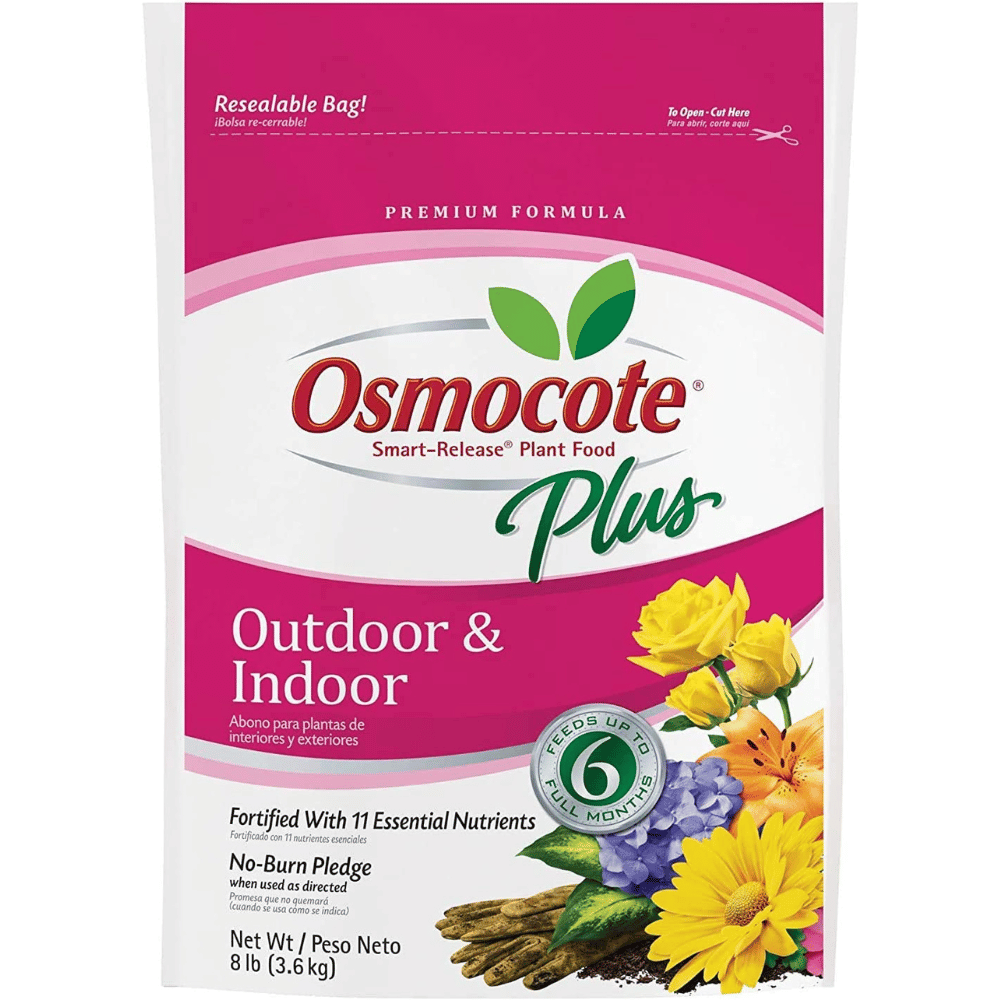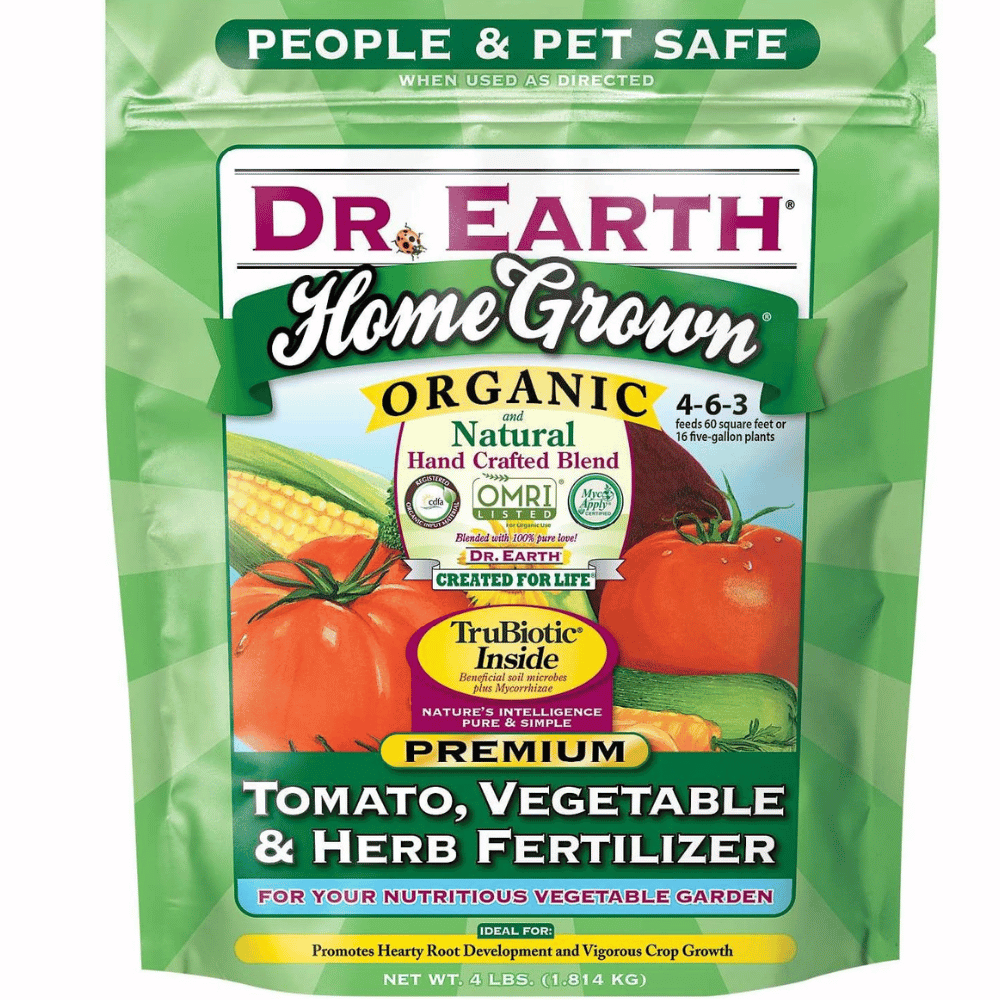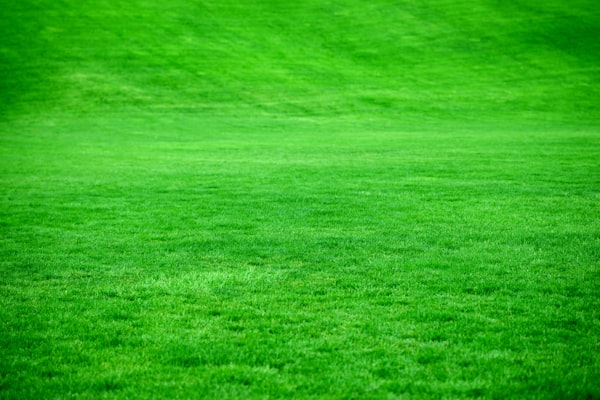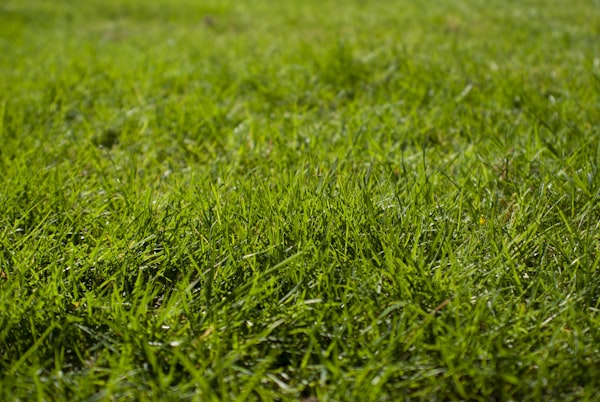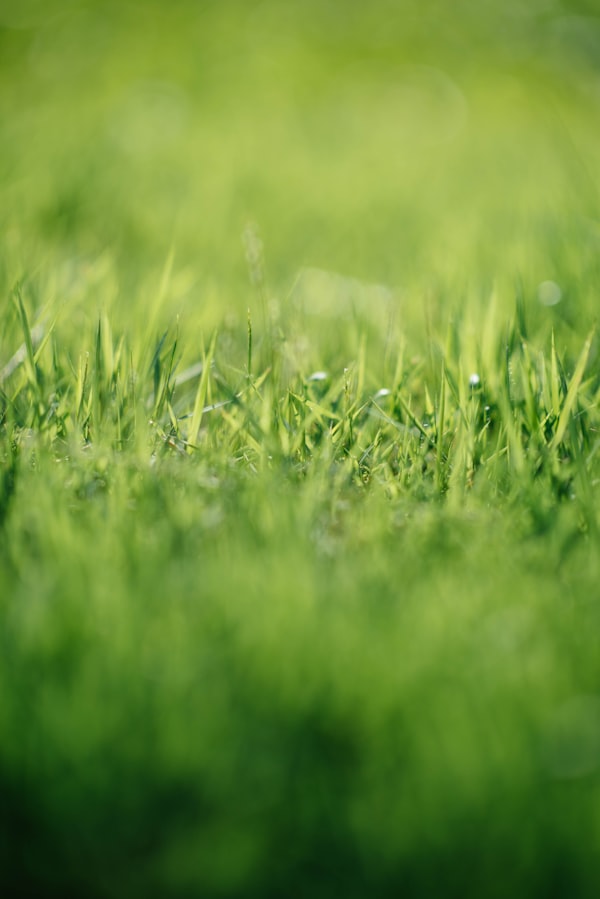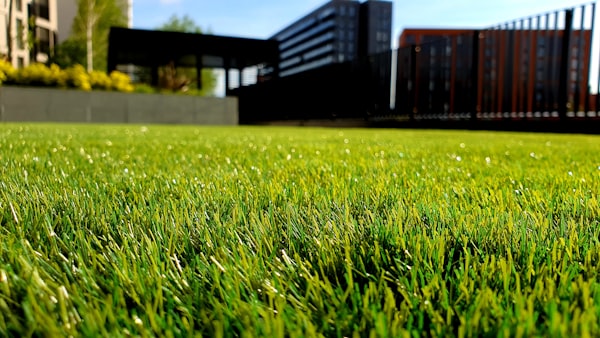Choosing the best tree fertilizer for your garden is essential for ensuring optimal growth, health, and beauty. Fertilizers provide the essential nutrients that trees need to thrive, including nitrogen, phosphorus, and potassium. However, with so many options available, it can be challenging to know which one to choose. In this article, we will explore the best tree fertilizer options on the market and provide helpful tips for making the right choice.
Why Use Tree Fertilizer?
Fertilizing trees can provide a number of benefits to the urban environment. Trees that are regularly fertilized with natural fertilizers, such as composted sewage sludge, cow manure, or complete fertilizer blends, receive the essential nutrients they need for growth and development. It can also help to maintain the existing growth, health, and vigor of more mature trees. Additionally, fertilizing trees and shrubs can stimulate growth and promote healthier roots. It is important to avoid using high rates of nitrogen fertilizer when planting a new tree, as this can lead to excessive leaf growth at the expense of root growth. When done correctly, tree fertilization can be an excellent method for keeping urban trees healthy and robust.
The Difference between Organic and Synthetic Fertilizers
Organic and synthetic fertilizers are both important tools in keeping soil healthy and productive. However, they are quite different in their makeup and in the way they can be used. Synthetic fertilizers are manufactured from minerals, gases from the air, and inorganic waste materials. They tend to provide higher nitrogen, phosphorus, and potassium levels than organic fertilizers. Organic fertilizers are derived from plant and animal parts or residues, such as blood meal, compost, bat guano, manure, seaweed and worm castings. These often cost more than synthetic ones but have advantages: they don't create a crust on the soil like synthetic fertilizers sometimes do, they improve water movement between the soil particles and they release nutrients slowly over time. Ultimately, when it comes to choosing the best fertilizer for any given situation it's important to consider both organic and synthetic options.
Key Features of Tree Fertilizer
When choosing the tree fertilizer, there are several key features to consider. These include:
- Nutrient content: Look for a fertilizer with a balanced nutrient content, including nitrogen, phosphorus, and potassium.
- Slow-release: Slow-release fertilizers provide a long-lasting source of nutrients, reducing the need for frequent applications.
- Easy application: Choose a fertilizer that is easy to apply and does not require special equipment or knowledge.
- Safe for the environment: Opt for a fertilizer that is safe for the environment and does not contain harmful chemicals.
What Types of Fertilizer to apply for Different Species?
When it comes to tree and shrub fertilizer, it is important to select the right type of fertilizer for the species. For best results a complete fertilizer, such as 16-4-8, 12-6-6 or 12-4-8, is generally recommended unless soil tests reveal that phosphorus and potassium levels are already sufficient. Trees usually respond best when using a fertilizer containing a 2-1-1 or a 3-1-1 ratio (nitrogen-phosphorus-potassium). Common forms of potassium fertilizer include potassium chloride (muriate of potash), potassium sulfate, potassium nitrate, and natural materials such as kelp. A complete analysis granular fertilizer with an NPK ratio of 16-4-8, 12-4-8, or 12-6-6 should work well for most trees and shrubs. If the tree is showing signs of poor growth or color, then a specific type of fertilizer might be needed. Consult with a local expert to ensure that you select the right type of fertilizer for your tree species.
How to Correctly Fertilize a Tree?
The application of fertilizer to trees is important for their health and growth. It's best to split the total amount of fertilizer into two equal parts, and apply one part in each direction to spread the fertilizer evenly. Measure out the amount of fertilizer that you need, and mark the outside boundary of the root zone with a garden hose or a circle of flour or lime. The best time to fertilize trees in the fall to mid-spring in most Northern temperate climates, as this is when their roots take up the most nutrients. If your tree is growing in mulched, forested or similar locations, a surface application will suffice; just spread the granular fertilizer on the soil surface. For deeper application, the hole method can be used - place fertilizer in 6-to 12-inch deep holes about 2 feet apart in concentric circles around the tree trunk. Alternatively, liquid soil injection is a method often used by professionals and results in rapid nutrient uptake. With these steps, you can make sure that your tree gets all the nutrients it needs for healthy growth!
How We Choose the Best Tree Fertilizer
We understand the importance of choosing the right tree fertilizer for your garden. To help you make an informed decision, we have researched and evaluated the top tree fertilizers on the market, using a variety of factors to determine our top picks. One of the primary considerations we take into account is customer reviews. By analyzing the experiences and feedback of real customers, we can gauge the effectiveness of a fertilizer and its ability to promote healthy tree growth. We also look at the nutrient content, application method, and environmental impact of each product, to ensure that we are recommending the best options for your needs. With our comprehensive guide, you can confidently choose the best tree fertilizer for your garden, knowing that it has been carefully evaluated and recommended by our team of experts.
Jobe's Organics Fruit & Citrus Tree Fertilizer
Why We Love It
Jobe’s Organics Tree Fertilizer is the perfect choice for gardeners looking to give their plants an extra boost. Made with a blend of natural and organic ingredients, this fertilizer is designed to provide essential nutrients to fruit and citrus trees. It also helps promote healthy root spread and development and improved soil structure, resulting in lush foliage and abundant harvests. With easy-to-use granules, this fertilizer can be quickly and easily applied to soil or potting mix with minimal effort. Gardeners can trust Jobe’s Tree Fertilizer to deliver superior results each and every season.
Miracle-Gro Fertilizer for Tree and Shrub Plant Food Spikes
Why We Love It
Miracle-Gro Tree & Shrub Plant Food Spikes are an excellent choice for promoting vibrant color and lush foliage. Made with all natural ingredients, the tree fertilizer spikes are easy to use and provide trees and shrubs with all the nutrients they need for healthy growth. Simply pound them in the ground with the included tool and feed your plants once per season in the spring and fall. Miracle-Gro Tree & Shrub Plant Food Spikes are also great for use on evergreens and acid loving plants. With Miracle-Gro, users get a fantastic bargain as they get a lot of fertilizer for the money and it's easy to apply. Highly recommended!
Espoma Organic Tree-Tone Fertilizer
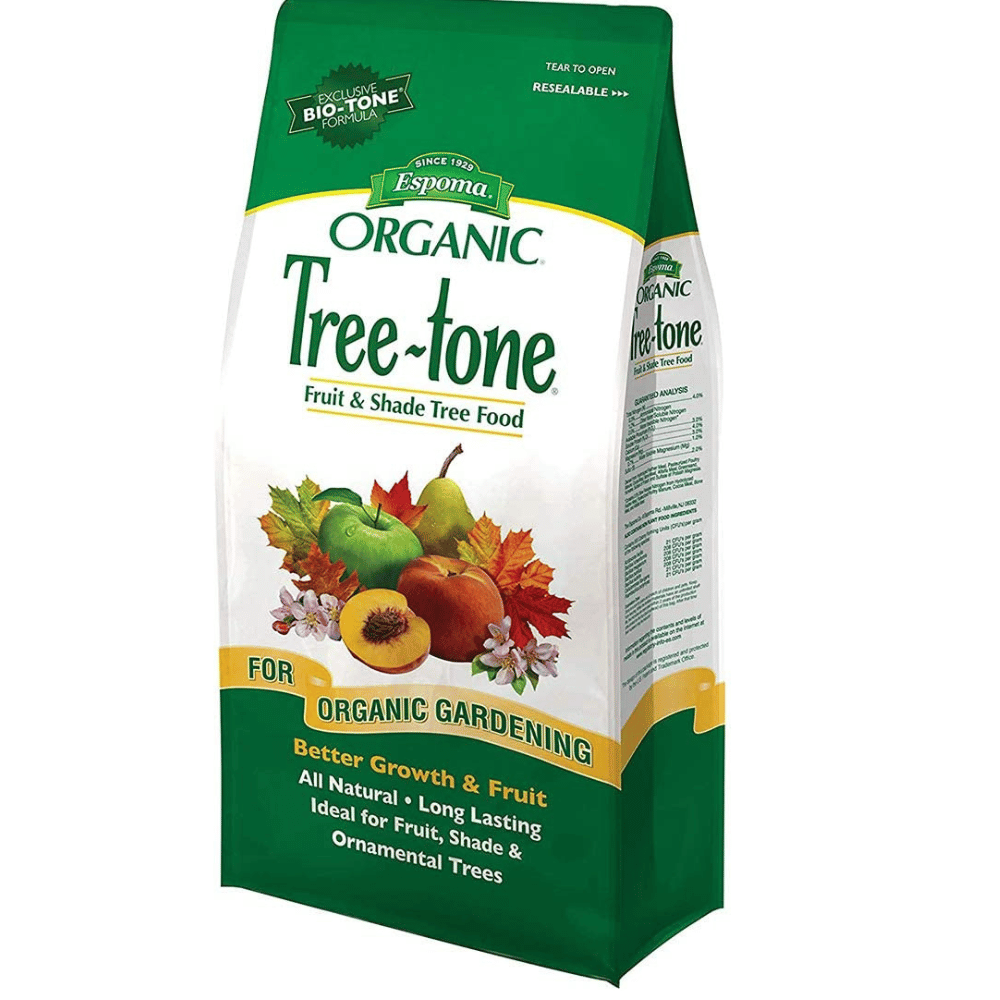
Espoma Organic Tree-Tone 6-3-2 Natural & Organic Fertilizer and Plant Food; 4 lb. Bag; Organic Fertilizer for All Trees.
Why We Love It
This organic fertilizer is perfect for all types of trees, including fruit trees like peach. It’s safe to use and is approved for organic gardening, meaning it won’t burn or leach away. It features a 6-3-2 NPK formula and Bio-tone, a mix of beneficial microbes. Plus, there are no fillers or sludges in the complex blend of natural organics. If you’re looking for an organic fertilizer that will nurture the development of your tree while providing long lasting, slow-release tree feedings, then Espoma Organic Tree-Tone Fertilizer is the perfect choice!
Osmocote Smart-Release Plant Food
Why We Love It
Osmocote Smart-Release Plant Food is an excellent choice for both indoors and outdoors. It is extremely easy to use and is recommended by many nurseries. This plant food helps to promote vibrant colors and longer-lasting blooms in flower baskets, containers, and vegetable gardens. It also feeds plants for up to 6 months, making it a great option for those looking for a long-term solution. People love the convenience of this product - just open it up and shake it around your plants for quick, easy application. Not only does it provide excellent nutrition for your plants, but it also helps promote beautiful flowers and vegetables all summer long.
Dr. Earth Vegetable & Herb Fertilizer
Why We Love It
Dr. Earth Home Grown Tomato, Vegetable & Herb Fertilizer is a great choice for those looking for an organic and natural fertilizer that is Non-GMO Project Verified. It is designed to feed vegetable gardens, trees or shrubs, container plantings or native backyard soil. It builds soil health, promotes a superior harvest with larger and more abundant, nutritious and tasty crops. This fertilizer contains no synthetic ingredients or GMO infested chicken manure and is 100% organic. It also offers a liquid fertilizer version to make application easier. With Dr. Earth Home Grown Tomato, Vegetable & Herb Fertilizer, you can be sure that you are getting the best product available to help your garden grow!
FAQs: Best Fertilizer for Trees
Choosing the best tree fertilizer can be challenging, with so many options available on the market. Whether you're looking to promote healthy growth, produce vibrant foliage, or boost fruit yield, it's important to choose a fertilizer that meets your specific needs. In this FAQ section, we'll answer some of the most common questions about the best shrub and tree fertilizers, providing in-depth and informative answers to help you make the right choice.
What is the best time of year to fertilize trees?
The best time of year to fertilize trees will depend on the specific needs of the tree and the type of fertilizer you are using. In general, it's best to fertilize in the early spring, before new growth begins, or in the late fall, after leaves have fallen. This allows the tree to absorb the nutrients when they are most needed. However, some slow-release fertilizers can be applied at any time of year, as they provide a long-lasting source of nutrients.
Should I Test My Soil?
Testing your soil is a good idea if you are uncertain about the nutrient content of your soil or if you are experiencing poor tree growth or other issues in your garden. Soil testing can provide valuable information about the soil pH level, nutrient content, and texture of your soil, which can help you determine if your soil is lacking in any essential nutrients that your trees need to thrive and determine which fertilizer to use. Soil testing is relatively easy and can be done through a soil testing kit or by sending a soil sample to a laboratory for analysis. Once you have the results of your soil test, you can use fertilizer that is specifically formulated to meet the nutrient needs of your trees and that will complement the existing nutrient content of your soil.
Can I use any type of fertilizer on all types of trees?
No, not all fertilizers are suitable for all types of trees. Different types of trees have different nutrient requirements, and some may be more sensitive to certain nutrients or chemicals. It's important to choose a fertilizer that is specifically formulated for the type of tree you are growing, or one that is suitable for a wide range of trees.
Is organic fertilizer better than chemical fertilizer?
Organic fertilizer and chemical fertilizer each have their own set of pros and cons. Organic fertilizers are made from natural materials, such as compost or manure, and provide a slow-release source of nutrients. They are generally more sustainable and eco-friendly than chemical fertilizers, but may be slower-acting and less precise in their nutrient content. Chemical fertilizers, on the other hand, provide a quick source of nutrients and can be more precise in their nutrient content. However, they may contain harmful chemicals that can be damaging to the environment.
Can over-fertilizing harm trees?
Yes, over-fertilizing can harm trees by causing nutrient burn, which can damage the roots and foliage. It's important to follow the recommended application rates for your specific fertilizer and to avoid applying too much or too frequently. Additionally, it's important to consider the nutrient content of the soil and the specific needs of the tree, to avoid overloading it with unnecessary nutrients.
How long does it take for tree fertilizer to work?
The time it takes for tree fertilizer to work will depend on the specific fertilizer and the needs of the tree. Granular fertilizers, for example, may take several weeks or months to fully break down and release their nutrients, while liquid fertilizers may provide a quicker source of nutrients. Slow-release fertilizers may provide a long-lasting source of nutrients over several months or even up to a year.
Can tree fertilizer be harmful to the environment?
Yes, tree fertilizer can be harmful to the environment if not used properly. Chemical fertilizers can contain harmful chemicals that can leach into the soil and water, damaging ecosystems and wildlife. It's important to choose a fertilizer that is safe for the environment and to follow the recommended application rates and methods. Additionally, it's important to consider the nutrient content of the soil and to avoid over-fertilizing, which can contribute to nutrient runoff and pollution.
Can tree fertilizer help prevent tree diseases?
Yes, tree fertilizer can help prevent tree diseases by promoting healthy growth and strong root systems. When trees are healthy and strong, they are less susceptible to diseases and pests. Additionally, some fertilizers may contain micronutrients or other ingredients that can help boost tree immunity and prevent disease. However, it's important to note that fertilizer alone may not be enough to prevent or treat tree diseases, and that proper tree care, including regular pruning, watering, and pest control, is also important for maintaining tree health.
How often should I fertilize my trees?
The frequency of fertilization will depend on the type of fertilizer you use and the specific needs of your trees. Generally, granular fertilizers should be applied once or twice a year, while liquid fertilizers may need to be applied more frequently.
Can I make my own tree fertilizer?
Yes, you can make your own tree fertilizer using compost, manure, and other organic materials. However, it can be challenging to ensure that your homemade fertilizer contains the necessary nutrients in the correct amounts.
How much Fertilizer to Apply?
When applying tree fertilizer, it is important to time the application and calculate the amount of fertilizer to apply correctly, and measure out the correct amount. Fertilizing in the fall between late October and early December or late winter/early spring between late February and early April is recommended. For fertilizing newly planted trees or young trees, 2-4 pounds per 1,000 square feet of tree root area is recommended when using a slow-release nitrogen fertilizer, while only 1-3 pounds should be used if using a fast-release nitrogen fertilizer. When applying fertilizer, it is best to spread it as evenly as possible and avoid over-applying. For the best fertilizer application method for coverage, it is recommended to apply half of the fertilizer in one direction and then spread the other half in another direction using a broadcasting method.
Conclusion
Choosing the best tree fertilizer for your garden is essential for promoting healthy growth, optimal yield, and vibrant beauty. Whether you opt for granular or liquid, chemical or organic, the key is to choose a fertilizer that meets your specific needs and provides the essential nutrients that your trees require. By following the tips and recommendations outlined in this article, you can confidently choose the best tree fertilizer for your garden and enjoy the benefits of thriving, healthy trees for years to come.


